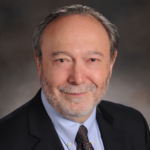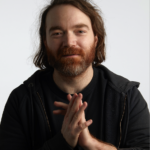


Our Polyvagel World: How Safety and Trauma Change Us
Our Polyvagel World: How Safety and Trauma Change Us
Information
Date & Time
-
-
Location
-
Southern Hemisphere III, IV, V
1500 Epcot Resorts Boulevard
Lake Buena Vista, FL 32830
Learning Objectives
Participants will be able to:
-
Describe at least 2 ways the Polyvagal Theory can be used to better understand clinical symptoms related to psychiatric diagnoses (e.g., PTSD, autism, depression and anxiety disorders).
-
Identify at least 2 deficits in regulation of the Social Engagement system. Describe how each relates to the core features of behavioral and psychiatric disorders.
-
Describe a neural process (neuroception) that evaluates risk in the environment and triggers adaptive neural circuits that promote either social interactions or defensive strategies.
-
Describe at least 2 ways autonomic regulation is connected to mental health, behavioral problems, learning processes and sociality.
Description
Legendary publisher, Gary Seidler, will moderate a dynamic interactive conversation with Professor Stephen Porges and writer/documentarian Seth Porges about their new book, ‘Our Polyvagal World: How Safety and Trauma Change Us.’ In Our Polyvagal World the authors have reduced the complexity of Polyvagal Theory to a set of practical principles and real-life examples that provide a worldview filled with optimism and hope, and a deeper understanding of the science explaining why our bodies sometimes act in ways our conscious intentional brain wishes it didn’t. The discussion will cover several topics including: connectedness as a biological imperative, potential neurobiological links between trauma and addiction, the consequence of the pandemic on mental health, and how stress and threat in the workplace, schools, and prisons can disrupt our nervous system.
Target Audience
- Addiction Professional
- Counselor
- Marriage & Family Therapist
- Psychologist
- Social Worker
Presenters

Stephen W. Porges, Ph.D. is Distinguished University Scientist at Indiana University where he is the founding director of the Traumatic Stress Research Consortium. He is Professor of Psychiatry at the University of North Carolina, and Professor Emeritus at both the University of Illinois at Chicago and the University of Maryland.
He served as president of the Society for Psychophysiological Research and the Federation of Associations in Behavioral & Brain Sciences and is a former recipient of a National Institute of Mental Health Research Scientist Development Award. He has published more than 400 peer-reviewed papers across several disciplines including anesthesiology, biomedical engineering, critical care medicine, ergonomics, exercise physiology, gerontology, neurology, neuroscience, obstetrics, pediatrics, psychiatry, psychology, psychometrics, space medicine, and substance abuse. In 1994 he proposed the Polyvagal Theory, a theory that links the evolution of the mammalian autonomic nervous system to social behavior and emphasizes the importance of physiological state in the expression of behavioral problems and psychiatric disorders. The theory is leading to innovative treatments based on insights into the mechanisms mediating symptoms observed in several behavioral, psychiatric, and physical disorders.
He is the author of The Polyvagal Theory: Neurophysiological foundations of Emotions, Attachment, Communication, and Self-regulation (Norton, 2011), The Pocket Guide to the Polyvagal Theory: The Transformative Power of Feeling Safe, (Norton, 2017), co-editor of Clinical Applications of the Polyvagal Theory: The Emergence of Polyvagal-Informed Therapies (Norton, 2018) and author of Polyvagal Safety: Attachment, Communication, Self-Regulation (Norton 2021). Dr. Porges is the creator of a music-based intervention, the Safe and Sound Protocol ™ (SSP), which is used by therapists to improve social engagement, language processing, and state regulation, as well as to reduce hearing sensitivities.

Seth Porges is an American director, producer, journalist, and television commentator. He produced, wrote, and co-directed the feature documentary Class Action Park, which premiered as the number-one movie on HBO Max in August 2020. In 2014, he additionally wrote and produced a documentary short about Action Park.
Financially Sponsored By
- GXC Events - The Global Exchange Conference